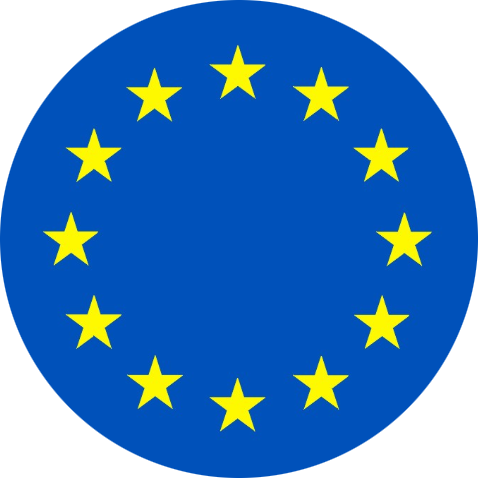Executive summary
- The Michel Barnier-led government has fallen, making Barnier the first prime minister to lose a no-confidence vote since 1962.
- In our view, the most likely outcome of the current political difficulty is the French government remains enfeebled and unable to pass a budget.
- However, a fresh legislative election is likely to occur in Q3 2025, with some factors pushing Marine Le Pen's Rassemblement National (RN) to gain additional seats, most likely at the expense of Emmanuel Macron's Ensemble party.
- Although there are some tail risks, we think it is unlikely that Macron will resign as president of France and will remain in place until 2027. However, in the longer term, we think persistent political paralysis will lead to the hard left or hard right gaining power.
- For market participants, we think unless there is a renewed centrist government, French debt dynamics will continue to worsen.
- As a result, we think French assets are likely to remain at risk for some time, warranting, we believe, a flat or underweight allocation.
What now for France?
Prime Minister Michel Barnier's government has fallen due to its inability to form a majority in the National Assembly to pass a 2025 budget. Barnier's attempt to pass the budget by decree led to a no-confidence vote, which he lost, making him the first prime minister to lose a no-confidence vote since 1962.
As a result of this political dysfunction, French government bonds have underperformed their eurozone peers, with French government bonds (OAT) spreads over German bunds widening to around 88bp at their peak. Meanwhile, the legislative reality remains difficult, with the National Assembly hamstrung by a febrile three-way split between the broad left wing (the Nouveau Front Populaire, or NPF), the center and center right parties that backed the Barnier government (Ensemble and Les Républicains, or LR), and Marine Le Pen's far-right RN.
The question for investors is what now for France? We outline France's potential pathways over the short, medium, and long term, and the implications for investors.
Short-term Implications (one to two months)
In the very short term, we think Barnier will remain as a caretaker prime minister, with only one primary task: passing a special law that temporarily carries over the 2024 budget. This would result in a French budget deficit of around 6% of GDP in 2025, similar to the 2024 outcome, rather than the deficit of around 5% of GDP that Barnier originally planned and had agreed with the EU.
We think this special law is much more likely to pass than Barnier’s original budget proposal because, if it fails, the French treasury will have no permission to spend anything to service France's debt, pay civil servants, or cover any other state expenditures. Any party held responsible for the failure of the special law would, in our view, face severe political consequences and a significant market backlash. Therefore, we believe the failure of the special law is only likely if both NPF and RN use it as a bargaining chip to force President Macron's resignation. However, given the mutual distrust, this high-stakes gamble is unlikely to come to fruition.
Le Pen’s upcoming court ruling at the end of March, which could result in a five-year bar from political office, may incentivize the RN to refuse to pass the special law. However, we believe there is little benefit for the left-wing bloc to accede to the RN's wishes. Additionally, some parties in the NPF are more center-left than far-left and would be very unlikely to risk a shutdown. As a result, we think the failure of the National Assembly to pass a budget law is an extreme tail risk, but one with high impact if it occurs.
Turning to the presidency, Macron cannot be pushed out of office before the end of his term in 2027, except through moral persuasion or the type of bargaining described above. His main task in the short term is to appoint another prime minister. We believe he has three broad choices.
- Firstly, and we think most likely, he could appoint another politician from the centrist and center-right parties that support him. However, any such government would face the exact same challenge as Barnier did in passing a budget and could fall apart by spring 2025.
- Secondly, Macron could appoint a technocrat as prime minister. While they may be able to gather a slightly broader support base, they would face the same challenges as his first option.
- Thirdly, Macron could appoint someone from the left wing who could split off some of the center-left parties from the NPF. However, the Socialists and Greens have little incentive to break from the NPF to join a new government coalition. There is no mandate in the current National Assembly for bringing the budget deficit under control, and any parties attempting to do so will likely suffer at the next election.
Medium-term implications (Next year)
The French constitution prevents the dissolution of the National Assembly within one year of the election, so Macron cannot call (or be forced to call) fresh elections until July 2025. Therefore, unless the NPF bloc has broken up by then and a more stable government coalition has formed, fresh elections are highly likely in Q3 of next year. Given their two-stage process, it is difficult to accurately predict French election results, even with up-to-date polling information. Therefore, predicting the outcome of next year's election is fraught with difficulty, but we can make some broad points.
Firstly, we believe the French economy is unlikely to have recovered strongly enough to deviate from the anti-incumbency trend that has defined other elections over the last year. As a result, we think it is plausible the parties linked to the government, currently mostly Ensemble and the center-right Les Republicains, will perform somewhat worse at the next election, unless public opinion of the opposition parties changes.
Secondly, although Le Pen's RN won the first round in the 2024 elections, the party did relatively much worse in the second round, winning fewer seats than either NPF and Ensemble, because of electoral agreements between left and centrist parties and candidates dropping out in three- or four-way contests to give the strongest chance of defeating RN. This longstanding convention in French politics started to break down at the last election, with La France Insoumise (the hard-left part of NPF bloc) and Ensemble in particular refusing to stand aside for each other. As a result, the RN won more seats than ever before.
The NPF won the last election in terms of seat numbers, and Ensemble lost. Nevertheless, Macron chose Barnier over any candidate the NPF put forward for prime minister. As a result, we think the sense of betrayal will make it harder for pacts to form to contain the RN.
Considering these factors and the prevailing uncertainties, we believe the most likely outcome of the 2025 legislative election is another divided National Assembly, with RN emerging as the largest coalition and Ensemble performing worse. Predicting the next Prime Minister is challenging, but we think Macron will find it difficult to avoid appointing Jordan Bardella, president of RN, as prime minister.
In our view, Bardella's elevation to prime minister would lead to a period of uneasy cohabitation, likely resulting in fiscal loosening and the unwinding of several recent reforms, increasing the risk that French assets underperform once again. Conversely, an alternative prime minister from NPF, with grudging external support from Ensemble, would likely lead to an even worse fiscal situation, even if relations with the rest of the EU are not as strained.
Putting this together, we believe there is a good chance that rating agencies could place France on negative outlook within the next year. Moody’s currently rates France at Aa2, the highest of the three major rating agencies, and is therefore the most likely agency to downgrade its rating. S&P and Fitch currently rate France at AA-. A downgrade from either agency could lead some international investors to reassess their holdings, potentially triggering a renewed widening of French spreads.
Implications for 2027 and beyond
During his first run for the presidency in 2017, Macron correctly diagnosed the French political system as under threat from both far-right and far-left parties, during a period of struggle for the traditional parties of the center-left and center-right. His solution was to pull all mainstream support into a new radical centrist coalition that became Ensemble. Although in his first term Macron was able to implement some reforms to help France's long-term fiscal position, those reforms, particularly changes to the state pension, have proved very unpopular.
As predicted, the reforms' failure to reinvigorate French economic growth has led the electorate to look elsewhere for solutions. Unfortunately, because Macron and Ensemble have cannibalized most of France's political center, many French voters are now turning to the extreme parties that Macron opposes.
Macron’s term as president ends in 2027, and although there are Ensemble-linked centrist candidates who will stand, we think there is a clear risk that, with a divided electorate, France’s two-stage presidential election could result in a choice between far-right (Le Pen or Bardella) and far-left (probably Mélenchon) candidates in the second round. Neither of these outcomes would likely be good news for French assets or French relations with the EU.
More generally, we believe France is caught in a long-term political decline, driven by an electorate unwilling to accept the economic pain necessary for meaningful economic and fiscal reforms. As a result, we expect the performance of the French economy to remain mediocre at best, which will likely increase political dissatisfaction and perpetuate a high budget deficit. Meanwhile, the French state is already highly indebted; public debt has risen to around 112% of GDP and we anticipate that it will continue to rise until at least 2027.
At some point, whether in 2027 or at a later election, the political gridlock is only likely to be resolved by one of the extreme wings (or both sequentially) taking power and implementing their policies. In our view, once these extreme policies are tried, and likely result in crisis, voters will swing back towards mainstream parties. This should then result in broader acceptance of the measures needed for France to succeed within the EU, echoing the experience of Greece, during the 2010s. While we do not believe France will follow Greece by defaulting on its debt, we do see the risk of significant market dysfunction in the years ahead.
 United Kingdom
United Kingdom



























